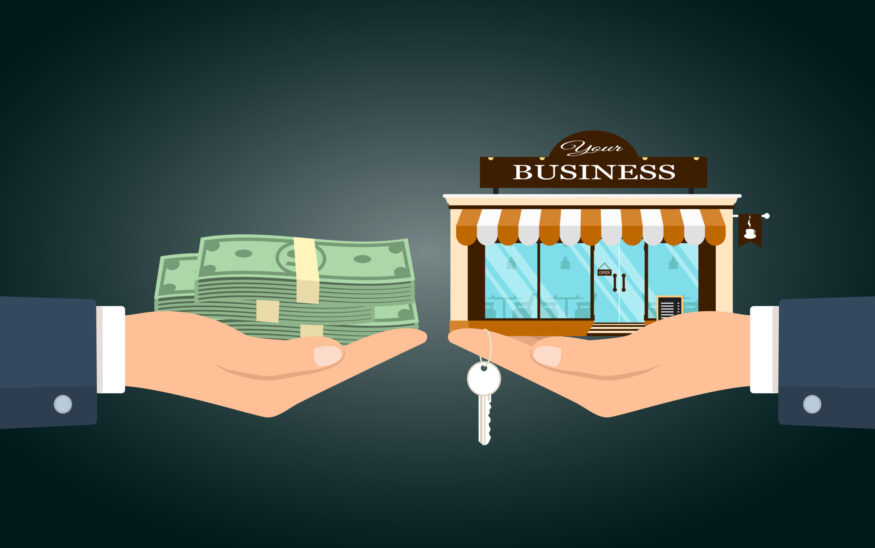2023 Will Be the Year of the Earndown: What Every Colorado Small Business Owner Needs to Know
You might have heard of "earnouts," but the term "earndown" might be much more applicable in 2023.
Julian Izbiky //December 12, 2022//


2023 Will Be the Year of the Earndown: What Every Colorado Small Business Owner Needs to Know
You might have heard of "earnouts," but the term "earndown" might be much more applicable in 2023.
Julian Izbiky //December 12, 2022//
Even with whispers of a possible recession on the rise, there continues to be high demand in the Denver metro and Front Range areas from buyers looking to buy all kinds of small businesses, at any price point. However, as we look ahead to 2023, small business owners in Colorado hoping to sell their business soon should know that we are about to enter a very interesting time in the transactional marketplace. I’ve coined 2023 “the year of the earndown.” So, what does that mean, and what do small business sellers and buyers need to watch out for?
READ — What Does a Recession Mean for Your Finances?
The Pandemic’s Impact on Small Business Revenues
It’s no secret that some businesses absolutely killed it during the pandemic. One example is businesses in the home renovation space. During the pandemic, consumers found themselves stuck at home and unable to spend money on travel, dinners out, sporting events, cultural events, etc. The result? They plowed their money into improving their homes. As a result, many businesses in the home improvement space likely have three years of financials showing significantly better numbers than their previous three years. What will that mean when those businesses come to market in late 2022 and 2023?
Increased Pandemic Revenue – Is It Sustainable?
Every seller who had a great three years will want a sales price that reflects the business’s performance during this timeframe. But potential buyers looking at the company will likely have concerns. Will the business stay at 2020 – 2022 levels, or will it revert to pre-pandemic 2019 levels? Will the business decline due to the dual problems of inflation and recession? And, with higher interest rates increasing the cost of loans to pay for the business, how much purchase price are they able to offer? Each of these factors is likely to negatively affect the purchase price a buyer is willing to pay.
Doing the Deal – Earnouts vs. Earndowns
So, how does this relate to the term “earndown”? To explain, let me back up and tell you what an earnout is. An earnout is a provision in a transaction that provides that the purchase price will go up based on the performance of the business after closing. I coined the term “earndown” to refer to what happens when the purchase price is reduced after closing due to the performance of the business after closing.
For example, let’s imagine a business that the seller thinks is worth $5,000,000 based on its 2020–2022 performance. However, the buyer thinks it’s only worth $4,000,000 based on its 2019 performance, and the buyer is not willing to guaranty the seller $5,000,000 because the buyer is concerned that the 2020–2022 performance is not sustainable. What’s the solution?
Traditionally, the solution would be the inclusion of an earnout provision in the sales contract, which provides that the purchase price will be payable as follows: $4,000,000 at closing, and additional payments after closing, up to an additional $1,000,000, based on the performance of the business after closing. However, the fly in the ointment with earnout provisions and small business transactions is that many small business purchase and sale transactions are financed with SBA-guaranteed loans—and Small Business Association rules prohibit earnouts in deals financed by SBA-guaranteed loans. But, SBA rules permit earndowns.
So, what does an earndown provision look like? The buyer could offer the seller $5,000,000, but pay $4,000,000 at closing and $1,000,000 in a promissory note, with the promissory note having terms that could cause the amount paid under the note to be reduced to zero if the business’s post-closing performance does not exceed 2019 levels.
If you are thinking about buying or selling a small business soon, it’s essential to understand how these factors may impact the deal. As an expert in small business purchases and sales who has closed over 1,000 deals, I have seen earndowns used many times to bridge the gap between a buyer’s and a seller’s expectations.
READ — Exit Planning: New Study Shows Most Colorado Business Owners Are Not Ready to Sell Their Businesses
Still, both buyers and sellers need to be realistic about the valuation of a business being sold. While sellers will hope that buyers see their increased revenue as a sign of continued growth and pay top dollar for their business, buyers are likely to be more cautious due to concerns about whether or not the increased revenue is here to stay. A great potential solution is including an “earndown” provision in your purchase agreement to help address the concerns of both buyer and seller.
 Julian Izbiky is an exceptionally experienced and well-respected mergers and acquisitions attorney. Throughout his career, he has closed more than 1,000 business purchases and sales, varying in size from several hundred thousand dollars to tens of millions of dollars.
Julian Izbiky is an exceptionally experienced and well-respected mergers and acquisitions attorney. Throughout his career, he has closed more than 1,000 business purchases and sales, varying in size from several hundred thousand dollars to tens of millions of dollars.
























